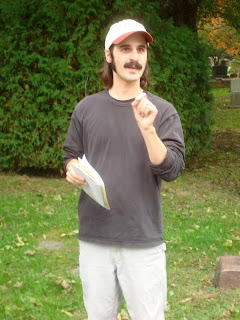Shortly after life had made of me a nineteen-year-old soldier in Germany, and an accounting clerk (as the Army termed it, though it was simple bookkeeping) in a hospital on a small base next to the town of Muenchweiler, I was befriended by my boss, Warrant Officer Philip Alden; later, more importantly, his wife, Ella, a beyond wonderful Jewish woman born in Britain, who had taken one look at me and decided I was "baby faced" and way too young to be away from home, became like a second mother to me. I have never loved anymore more than I came to love Ella Alden. My fellow soldier and closest buddy, Eddie Franklin, were added as honorary members of the Alden family, which included Phil and Ella's two pre-teenaged sons, Pip and Adrian. I could write chapters about the good experiences we had, but today's mini-essay has a different point.
Ella would occasionally write an author whose book she'd enjoyed, often hearing back from them; she also sometimes wrote letters to newspapers, usually to The Manchester Guardian (she'd been born in Manchester). These letters generally were just funny little anecdotes such as (the one I remember) about a rude bus driver she'd encountered on a visit to London.
In emulation of Ella, I wrote a letter to The Guardian myself. I said (as best I can recall) that I was a U.S. soldier in Germany, loved getting letters, and had just read and loved T.S. Eliot's Old Possum's Book of Practical Cats, and if any of my readers had any poems about cats I'd love it if they sent them to me. Well, I got maybe fifty letters from a wide variety of people ... a few with a poem ... several from a man or a woman who just wanted to express appreciation to an American for the help Britain had received from us in World War II ... some from folks who just wanted to perhaps allay what they perceived as the loneliness or homesickness of a young man thousands of miles from his home.
I answered every letter. Some wrote back; some became correspondents for various periods of time but all eventually -- some on my part, some on their part -- petered out. The longest correspondence though was with a young girl from Manchester named Margaret. Her letters were always welcomed; we wrote back and forth into the mid-sixties; I don't recall in detail exactly how this correspondence ended, but I have a vivid memory of writing her what I think was my last letter from a rooming house in Ypsilanti, Michigan, where I had a temporary assignment at that town's Western Union Telegraph Company office. (Oddly, so many memories for me are accompanied by a memory of what book I was reading at the time, and I wrote Margaret (who had by then come to America to work as a nanny in Westchester County) that I'd just finished Flush by Virginia Woolf. (A delightful book, by the way, a' biography' of Leonard and Virginia Woolf's cocker spaniel; rare light fare from Virginia's pen.)
This morning I received a message on Facebook: "Hello, I don't suppose you are the George Fitzgerald that used to write to me in England. If you are that George you would have been stationed in Germany doing national service. Sorry to trouble you if you are not the right person. Kind regards. Margaret Blake."
I responded that I remembered writing to a Margaret Glasier; would that perhaps have been her maiden name? Meanwhile, seeing on Margaret Blake's Facebook page that she was a novelist, I learned that she was from Manchester and seventy years old. It was beginning to come together.
I drove to Orleans, got my haircut, had a bagel, grocery-shopped. Back home there was another message on Facebook: "Hi George, This is amazing! Yes it's me, Margaret Glaiser. I live ... on the Lancashire coast now, and yes I did go to live in New Rochelle, near Scarsdale. I was looking through some old papers and came across a stack of letters from you in the bottom of my filing cabinet. I thought I would Facebook you and believe me you were the first person I contacted. I remembered you originated from Indiana and it all sort of fitted in. Yes, at last I am a writer. Remember we used to talk about writing all the time. You used to write the most beautiful letters. I often wondered what happened to you. Goodness, have so much to tell you and you must have loads to tell me. I recently lost my husband of 38 years so have been so nostalgic about many things. Goodness, this is so exciting."
Exciting?
So much so that I've had to take a valium.
---
Update Oct. 31: We're on email now; we're new old friends. I'm still agog but instead of a valium I'll drive someplace nice for a walk.
































